Rabat EduCom International Summer School (REISS)
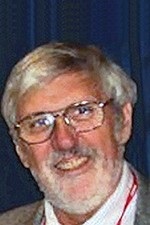

The Rabat IEEE NPSS EDUCOM International Summer School (REISS) was held at the Faculté des Sciences, University Mohamed V of Rabat, Morocco from July 1st– to 10th, 2024.
The objective of the 2024 International Summer School was to cover theoretical and practical courses on nuclear radiation instrumentation, detection and measurement starting from basics physics and focusing on selected applications. It was based on the long experience from past NPSS instrumentation schools since 2014. These schools aim to make the students familiar with the practical applications, their specific potentials, and limitations.
The International Schools align with NPSS’ strategic goals “to meet educational and professional development needs of our community” and “encourage the growth of an international, diverse and inclusive community of volunteers”. With its high-quality course program given by experienced lecturers, it will contribute to the education of students (undergraduate and post-graduate) and young researchers in the field of nuclear instrumentation and radiation measurement. The participants will also benefit by developing or expanding their network, especially as they are encouraged to become active NPSS members.
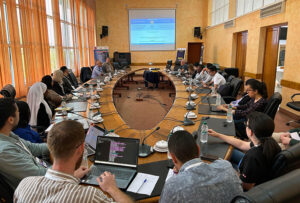
The school extended over 8 full days (one week and a half) with topics dealing with radiation instrumentation and measurement, their applications to fundamental and medical sciences, and nuclear energy (fission and fusion). The main objectives were to train students in the area of radiation detectors and their applications, to enhance the development of nuclear sciences in north and central African countries, and to promote the participation of young scientists and local mentors in radiation measurements and related fields. The faculty consisted of over 20 lecturers both from the NPSS community (mostly North America and Europe) as well as local lecturers from Morocco. Full details of the program and the lecturers can be found on the school web site https://indico.cern.ch/e/rabat
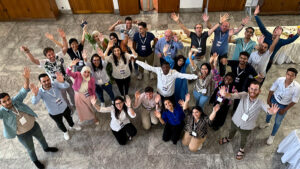
From a total of 80 applications, 35 participants were selected. 50% were local students from Rabat and the rest from elsewhere in Morocco, plus a few from other African countries and from Europe. We had a 50:50 share between female and male participants.
The topics for plenary lectures included:
- Interaction of radiation with matter and fundamental aspects of radiation detectors
- Basic applications in fundamental research.
- Radiation instrumentation and measurement methods for nuclear energy
- Data acquisition and analysis, statistics, image processing
- Scintillators and photodetectors
- Gaseous detectors
- Electronics and semiconductor detectors
- Radiation instrumentation for international security
- Nuclear physics instrumentation in medicine from diagnostic to treatment
- Tips for writing and presenting scientific work
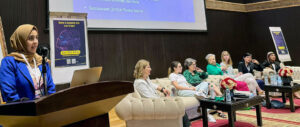
A special event to encourage Women in Engineering (WIE) was organized on Wednesday July 3rd. It aimed to promote diversity in Science, Technology, Engineering and Mathematics, encourage under-represented students and young professionals to break barriers, and foster a supportive community for future professionals in the field. The event was well attended by some 50 participants, male and female. After the introduction by Cinzia DaVia, presentations by local female scientists followed: Fouzia Msefer Alaoui gave an insight of her life as a pediatric oncologist (she came with her granddaughter as translator!), and Naima Hamoumi highlighted the role of women as environmental protection ambassadors. Naima El Khayati (Morocco), Trang Hoang (Vietnam) and Andrea González Montoro (Spain) reported about women in STEM in their countries and regions. Several shorter contributions by students and young professionals followed. After that the audience joined in a lively discussion and later in an informal get-together to allow the attendees to network with the WIE and school speakers.
On one afternoon we had a visit to the Centre National Rehabilitation and Neurosciences CNR-NS, in order to get a deeper insight in medical applications of radiation instrumentation. Medical doctors and medical physicists demonstrated the use of the hospital facilities for imaging (CT, MRI, angiography) and radiotherapy (Cyberknife).
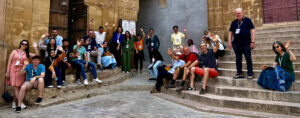
On Saturday a cultural visit was organized with a tour of the Roman ruins of Chellah and a guided city walk of Salé.
Hands-on laboratory exercises were organized the second week (photodetectors, time of flight measurement with cosmic rays, Timepix and Medipix, EasyPET, GATE simulation, and data analysis with AI). The experiments were run in parallel sessions to let the students work in smaller groups.
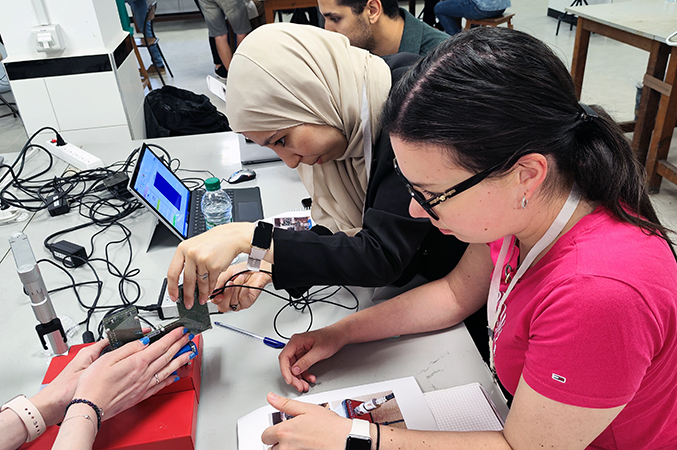
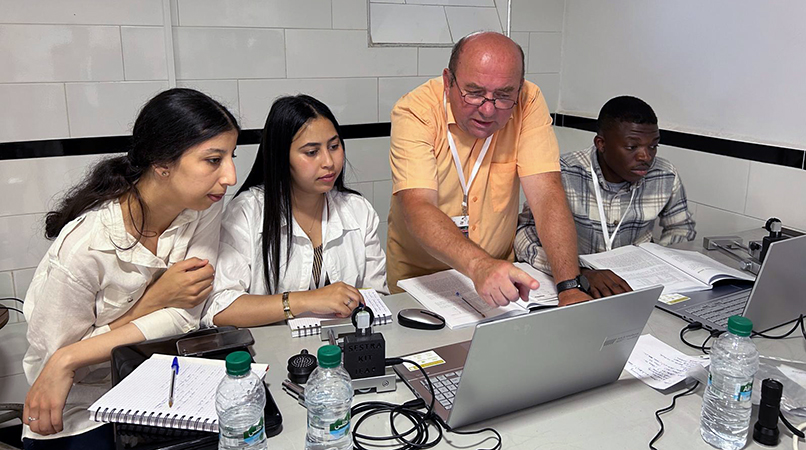
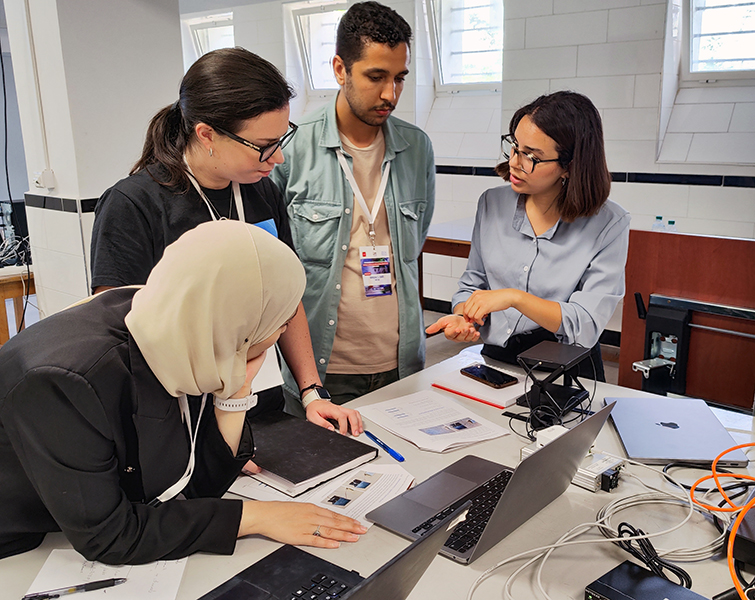
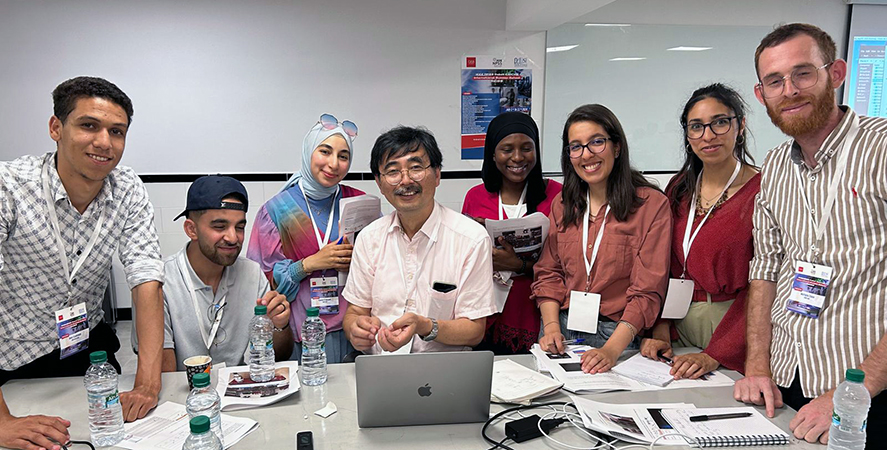
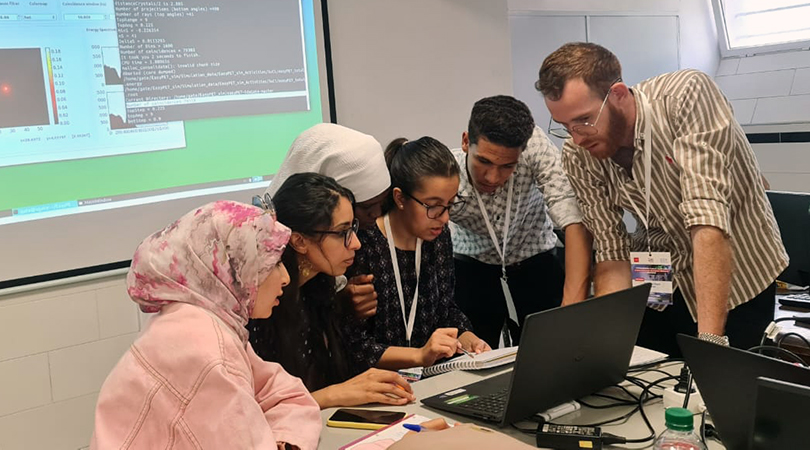
On the last day each student gave a short presentation about one school topic of his/her choosing.
NPSS had recently established the “School to Conference Initiative”, which provides funding to invite one EduCom school student to a NPSS conference or similar event. The Rabat school saw the very first recipient of this new award. See the separate article about the funding recipient Mustapha Chaoui in this issue.
The success of the school is reflected by a survey conducted at the end: everybody confirmed their perfect satisfaction with the school in general, the lectures, the exercises, the teachers, and the social program. Due to logistic constraints, we had all the lectures in the first week and all the exercises in the second week. Many suggested it would be better to alternate lectures and exercises over the duration of the school. We will take this proposal into account for future schools.
All participants were very pleased to be able to join the school and expressed their thanks to the organizers, teachers and exercise tutors.
On behalf of the organizing committee, we would like to warmly thank all the lecturers and exercise tutors and assistants. The organizers gratefully acknowledge the financial and logistics support by NPSS (EduCom, Distinguished Lecturer program , DING initiative, WIE), CEA Cadarache, and the Université Mohammed V Rabat.
Patrick Le Dû, retired from the French Atomic Energy Commission (CEA-IRFU), can be reached at [email protected]
Martin Grossmann can be reached by E-mail at [email protected]